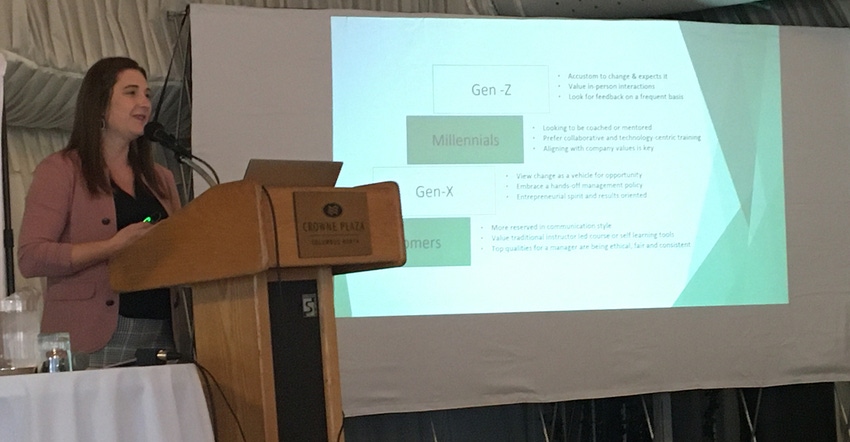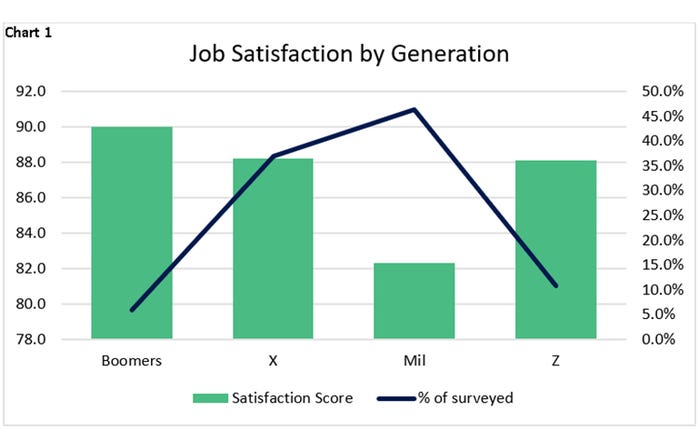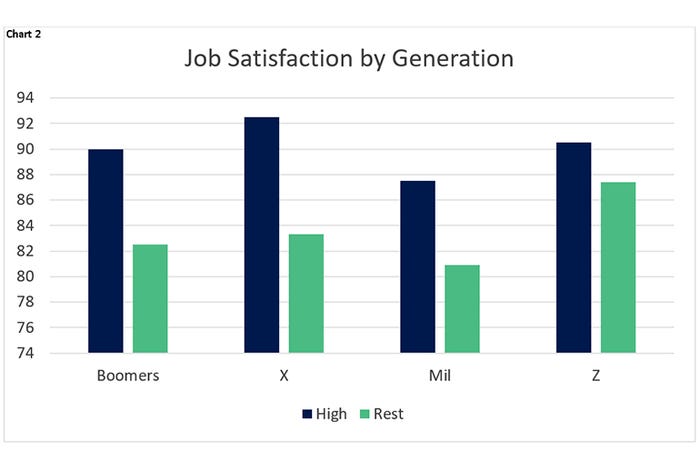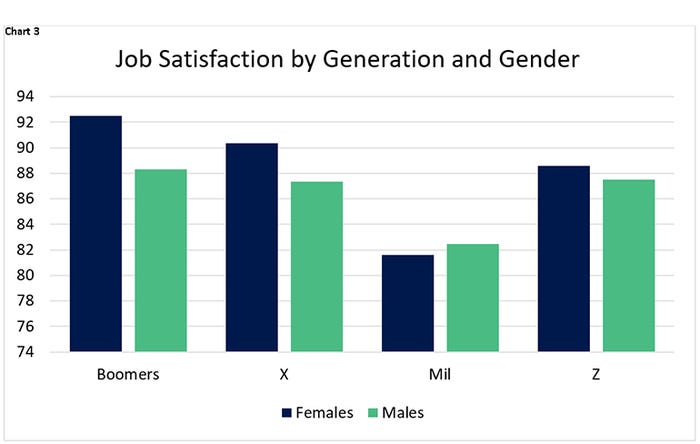Disruption in the barn doesn't have to be viewed as a negative
There is variation within each generation, not just across them; making it important to avoid stereotyping someone based on their generation.
February 12, 2020

When we hear the word disruption, most think of it as a bad thing. In the swine industry disruption comes in many forms: environmentalists and animal rights activists are negatives. Disruption also comes as new technologies, management practices and even people that can all be positive for the industry. Millennials, especially are being referred to as disruptors in the workplace and not always in a positive light but shouldn't we be focused on the positives?
Everywhere you look there is information about the labor shortages that the country is facing and the number of Baby Boomers retiring each year is staggering. In this article, we will revisit the data from the Labor Intelligence Study and look at the differences in generations that were observed from sow farmworkers. If you missed the article in the January issue of National Hog Farmer that showed other findings from the study, you can find it here. There were 103 team members assessed from 12 farms for the study.
Different sources use different birth years for the generations, but they are pretty similar to each other. For the purpose of our study we broke out the Boomers as born from 1946 to 1964. Generation X is for those born from 1965 to 1980, Millennials were born from 1981 to 1995, and Generation Z in 1996 and later.
In Chart 1, the percent of assessed is shown by generation with their satisfaction scores. The good news is that just 8% of the workers in this study were Boomers, this would be consistent with what is observed across the industry. While Boomers and Generation Zs had the highest levels of job satisfaction they make up less than 20% of the barn workers surveyed.

In Chart 2, we broke out the satisfaction scores by generation and the high-performing farms (those over 27.5 pigs weaned per mated female per year) compared to the rest of the farms in the study. Across all generations, those in high-performing farms are more satisfied than their counterparts in average and low-performing farms.

When looking at the gender of workers in the study, just 28% were female while 72% were male. In Chart 3, job satisfaction is displayed by gender and generation. Overall, females had slightly higher satisfaction scores at 85.4 compared to male counterparts at 84.8.

The final piece of data for this article in Table 1 shows the overall satisfaction of positions surveyed and generation. Empty boxes indicate that there were fewer than three in that position. Those in Generation Z have just 2.5 years of experience compared to Millennials at 4.2 years, Generation X at 12.9 years and Boomers averaging 16.4 years. The amount of experience someone has on the job can impact engagement scores, generally newer additions to a team are more engaged.

There are certainly differences between the generations both at home and at work, here are some of the keys as they relate to the workplace.
Baby Boomers
Work best in teams
Like being able to ask for direction
Often prioritize their work over everything else
Want to resolve conflict through consensus of the team
Have a reputation for being unadaptable
Gen X
Are adaptable and independent
Like working on their own without interference
Like a structured workplace
Want conflict addressed and resolved immediately
Desire a healthy work-home life balance
Millennials
Want opportunities to learn and grow
Expect feedback often
Prefer to learn for themselves rather than being told what to do
Need a sense of purpose from their work
Avoid face-to-face conflict, may address it through text messaging
Desire flexibility in the workplace
Gen Z
Want even more frequent feedback than Millennials
Prefer a Millennial manager over a Gen X or Boomer
Increased desire for working with others over the previous generations
Have little to no experience in workplace conflict so they don't have any idea how to handle it.
There is variation within each respective generation, not just across them; making it extremely important to avoid stereotyping someone based on their generation. Millennials are the most unhappy and disengaged in today's society, not just those in this study. This tech-savvy generation gets the stereotypes of being entitled and lazy yet willing to implement technology that previous generations have been slow to adopt. They are actually development-driven and want to be trained for their roles. Their need for knowledge pushes them to want and pursue ongoing training.
John Forelich was a disruptor in 1892 when he built the first gas-powered tractor. Wayne Singleton and Billy Flowers were disruptors in the adoption of artificial insemination in this country. Soybean meal was a disruptor to the way pigs were being fed and more recently dried distillers grain with solubles did as well. The development of slatted floors in the 1950s was a huge disruption to the way pigs were raised. All of these things have made a tremendous difference in the way that pigs are raised, and millennials can and will have a tremendous impact as well. For it to be a positive one, listen to what they are telling you and adapt.
Millennials want to focus on their strengths, if they are good at Day 1 pig care, they want to be recognized for it, work in that area more, and not be pushed to work in other areas that they are not as good at. Weaknesses never develop into strengths, so find out the strengths of each person and align their roles around those strengths. Millennials are continually looking for roles and organizations that enable them to perform at their best. If your organization doesn't meet those needs, they will go to other organizations to find it.
With more Boomers retiring each year, it is the Millennials who are the next generation of leaders within our companies. Their desire to learn and their technology skills make them qualified, but as an industry, we should ensure that they are allowed the opportunity for growth and flexibility to thrive. If their values do not align with that of the company, they will not stay in one place for long. Their engagement is key to their performance and by learning more about their preferences instead of their negative stereotypes and applying them, improvements in company culture, lower turnover and higher performance will be obtained.
Summit SmartFarms is devoted to creating irresistible places to work in agriculture by simplifying the complex for labor and technology. If you would like to learn more about how Summit SmartFarms can help your organization, contact Sheldon or Duttlinger.
Sources: Kasey Sheldon and Valerie Duttlinger, who are solely responsible for the information provided, and wholly own the information. Informa Business Media and all its subsidiaries are not responsible for any of the content contained in this information asset.
You May Also Like



